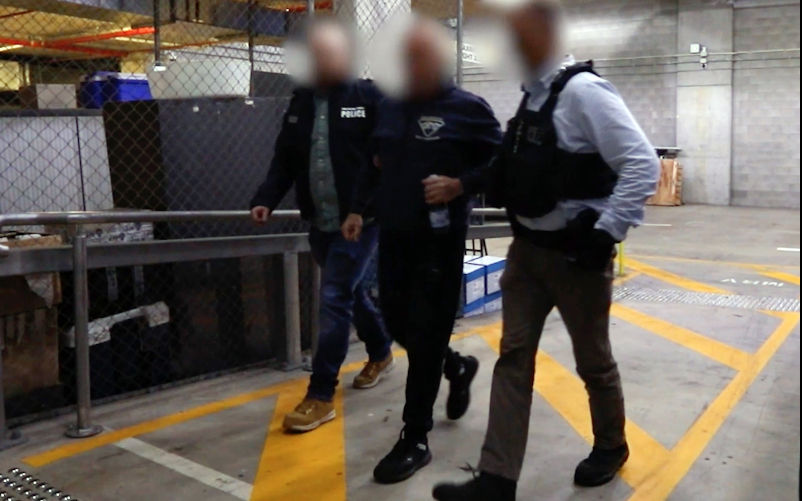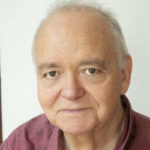The security vetting process has gone off the rails in Australia.
It’s been outsourced to the private sector, which has a financial incentive to make renewing a security clearance as lengthy as possible. Those with high-level jobs in many government departments, agencies and the defence bureaucracy have to renew their clearance every five years. They can be tied up chasing requests for more and more personal documents and to do psychometric tests, etc. There is a strong case for scrapping this bloated apparatus and simply require people to maintain confidentiality. Perhaps some other country will get their hands on some classified Australian material. This may not matter. In some cases, it may reassure the other country that Australia has no malicious intentions towards it.
The “Positive Vetting” system almost certainly did not apply to the 40 year old Private Kira Korolev who has been charged with stealing sensitive Defence Force information for Russia. She had previously lived in Russia before taking out Australian citizenship. Her husband Igor, a 62 year-old labourer has also been charged.
At the time of writing, it seems the spy catchers might’ve jumped the gun. The federal police head Reece Kershaw said it “remains a key focus of our investigation” as to whether information was handed over to the Russians. He added “no significant compromise” had yet been identified.’
The full security clearance treatment, called “Positive Vetting” is officially described “as covering all aspects of your life. It is comprehensive and intrusive. It also takes time to complete, usually a number of months, and will require you to assemble documentation relating to many parts of your life as well as psychometric testing etc.” A slightly less intrusive process can apply to officials needing to refresh the second highest level of clearance called “Negative Vetting 1”.
Senior public servants often have extraordinary busy jobs. Now they are expected to simultaneously run around meeting the demands of a private sector consultants, who supposedly have the ability to weed out security risks. The whole exhausting performance represents the triumph of the National Security State over good government.
Albanese lost his normal cool over the Korolev affair. He said Russia had “no credibility” after “engaging in “espionage around the world”. How this differs from widespread US espionage activities is unclear. After the Russian embassy asked for information about what was happening to the Korolevs, he said, “Russia can get the message. Back off.” He added, “This is a country that has no respect for international law and they should be regarded with contempt, which is what I have for them. “
Albanese was speaking as if Australia never engaged in espionage – it’s what the Australian Secret Intelligence Service does full-time. It is also a major preoccupation of nation’s eavesdropping organisation the Australian Signals Directorate. Australian Maritime Patrol aircraft also engage in espionage when they drop thousands of sonar buoys in the South China Sea to record the sound of Chinese submarines and other ships for use in identifying their position in wartime.
In some cases espionage can prevent a nuclear war. The 1983 NATO exercise Able Archer simulated a nuclear response to a conventional Soviet invasion of Europe. The exercise contain new features that made the Soviets fear that it was a genuine attack and got ready to respond with its own nuclear weapons. Fortunately, an East German spy in NATO headquarters told them that it was only an exercise – an explanation that a Soviet spy in London also passed on.
In announcing the arrest of the Korolevs, the ASIO head Mike Burgess said “he was speaking directly to the Kremlin and its spies” on the 70th anniversary of the Petrov affair when Russian intelligence officials defected to ASIO. He said in the current context, “If you want to share your secrets, please reach out.” The Petrov affair was one of ASIO’s worst failures. It spent a lot of time convincing Vladimir Petrov, the KGB head in the Embassy, to defect. The idea was that he would come across with information and documents showing who his agents in Australia were. Petrov was a lazy drunk who was worried he might be punished if he returned to Moscow at the end of his term. His problem was he never got around to recruiting a single agent. Nor were any leftover from an earlier era. A Royal Commission was established and fully expected to expose Australians who are working for the Russians. However, Petrov had nothing of the kind to deliver.
Burgess’ swiftness to announce that the two Russians were arrested was in sharp contrast to his earlier Threat Assessment speech on February 21, 2023 when he said that ASIO had caught a “hive of spies” in Australia. He did not name the country responsible, but the media confidently reported that they were Russian spies. It wasn’t until April 20, this year that the media accurately reported the Indian foreign intelligence service was responsible for those spies and ASIO removed them from Australia.
In an interview with the ABC while Burgess was visiting the United States in November, he declined to answer whether the Indian government’s foreign operations caused any concern for ASIO back in Australia. He said, ‘I don’t comment on the actions of any government”. Pressed on whether he had ever been involved in the expulsion of Indian personnel from Australia, he again declined to comment.
A spokesperson for Penny Wong said in September 2023 that Australia is “deeply concerned” by allegations that the Indian government may have been behind the murder of a Sikh activist in Canada and has revealed these concerns at “senior levels”. Prime Minister Trudeau had just said there was “credible evidence” that Indian authorities were linked to the brazen shooting of a Canadian citizen in June.
However, when Albanese was questioned following the Canadian Prime Minister’s clear statement about the Indian foreign intelligence service being engaged in assassination, he said, “I don’t talk about Five Eyes, intelligence at a press conference”. He did not explain what was wrong with doing so. He also dismissed the reporter who asked if he regretted labelling the Indian Prime Minister Narendra Modi “the Boss”. He replied, “Seriously, you should chill out a bit”.
It’s all a long way from his sharp remarks about how Russia should be treated with contempt for engaging in what looks like being a minor espionage incident, at most. It is not remotely on the same scale as the Indian intelligence service assassinating someone in Canada.
Brian Toohey has been a columnist with the Australian Financial Review. He has also written for The Nikkei Asia Review, The West Australian, The Sunday Age and other publications. He was editor of The National Times and a Canberra and Washington correspondent for AFR. He is the author or co-author of four books: Oyster: The Story of the Australian Secret Intelligence Service; Tumbling Dice: The Story of Modern Economic Policy; The Book of Leaks and The Winchester Scandal. Among other subjects, he has written extensively about national security policy since 1973.

